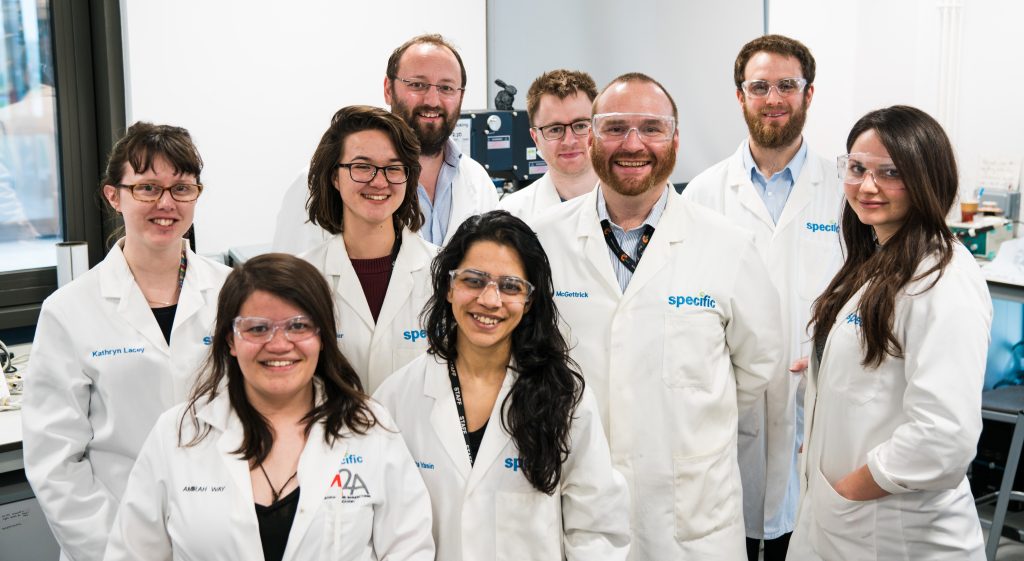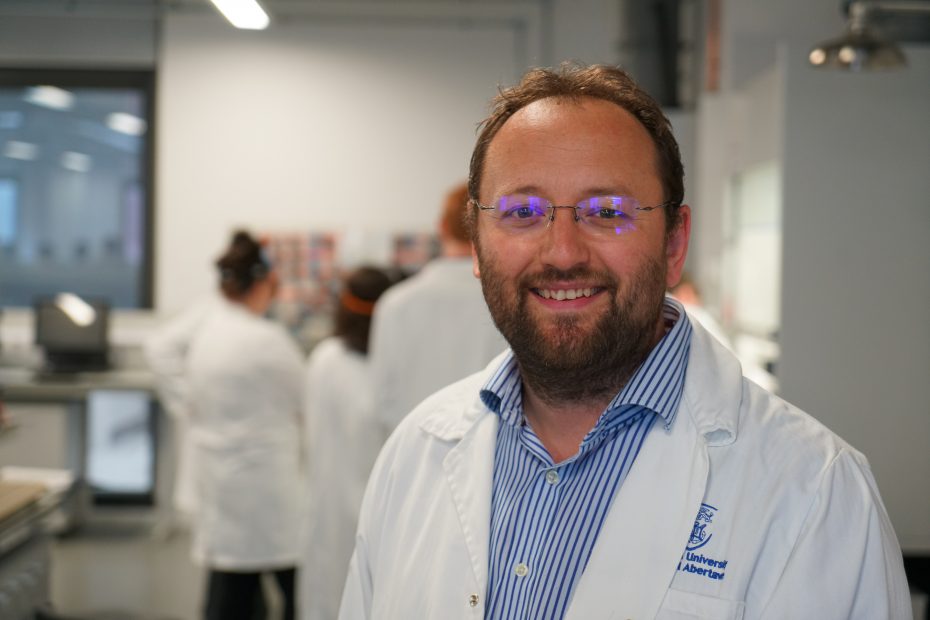Our very own Professor Trystan Watson – member of SPECIFIC’s Management Team, our Photovoltaics Research Lead and Swansea University Professor – recently published his 100th academic paper.
Professor Watson has been a part of the SPECIFIC team for 12 years and is passionate about his work. Trystan and the group have gained a reputation within the PV community, for identifying solutions to manufacturing challenges, publishing quality research papers and for having a good time networking at conferences.
He started his academic career with a Chemistry degree at Swansea University spending a year out as an analytical chemist at 3M. He then transferred to the College of Engineering to carry out a Doctorate in Steel Technology. As part of this doctorate he used scanning electrochemical techniques to characterise corrosion phenomena such as Filiform corrosion on packaging substrates and co-invented a novel packaging coating to inhibit corrosion during high temperature heat treatments.
Trystan then moved to Corus Strip Products (now Tata Steel) as a product development engineer as well as a theme leader for the process technology group in the engineering doctorate scheme. It was there that he became a chartered engineer with the Institute of Materials Minerals and Mining.
In 2007, Trystan returned to academia to take up a research position on the development of dye-sensitized solar cells on metal substrates. Since then his research has focused on thin-film printed PV with a specialism in developing new technologies for the manufacture of solution processable photovoltaics such as perovskites and OPV including deposition (roll-to-roll and sheet-to-sheet) and curing processes and their characterisation using electrochemistry, photochemistry or optoelectronic methods.

His research goal is to take these new material sets and develop the manufacturing pipeline for fabrication at scale. This is achieved by determining the loss mechanisms associated with scale, addressing process bottlenecks to reduce fabrication time and ensuring the widest range of substrates by building devices on sheet processed glass and roll to roll metal or plastic.
Trystan understands the importance of partnerships and encourages collaborations by actively boosting paper publications within his team (the largest research team in Swansea University’s College of Engineering). He motivates his students on the importance of effective research dissemination through leading by example. He has now published 102 papers, with 2,120 citations, helping to develop future Swansea academics and researchers. Trystan is incredibly enthusiastic and engaging by nature, and it’s difficult not to be inspired by his passion for research.
“One of the most exciting aspects for me in this role has been the opportunity to work with so many excellent people from all over the world.”- Trystan Watson
Thank you, Trystan, for all your hard work!
